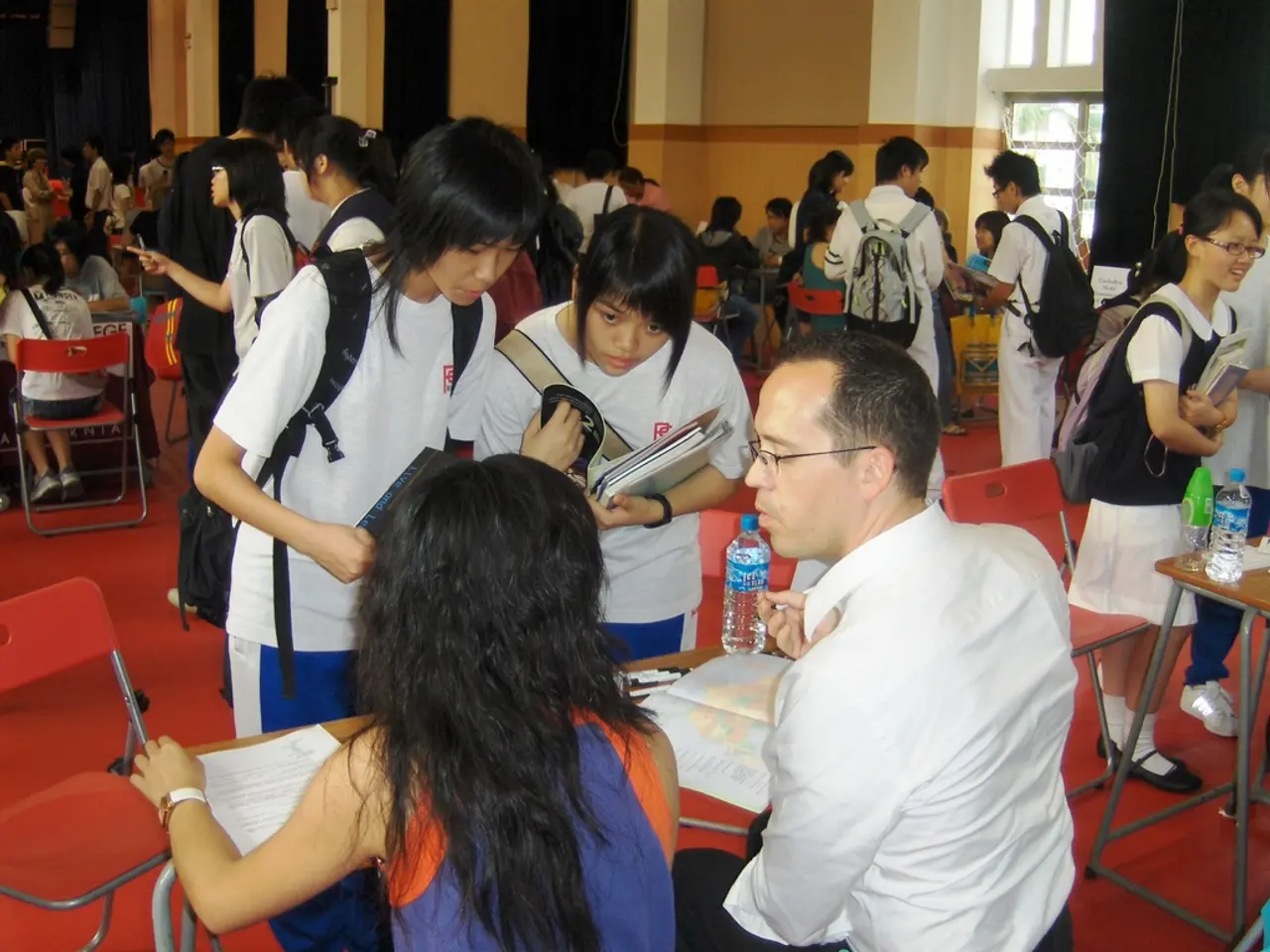Documents revealing discussions about sexuality, not directly tied to citizenship, are presented in a public consultation process.
Portugal's Sex Education Policy Undergoes Significant Changes
In 2025, Portugal's sexual education policy experienced a notable shift under the leadership of Education Minister Fernando Alexandre, marking a scaling back of explicit sexuality topics in schools. While sex education remains part of the curriculum under the Citizenship and Development subject, explicit references to sexuality, sexual orientation, and reproductive health have been largely removed or significantly reduced.
The revised Citizenship and Development curriculum now prioritizes financial literacy, entrepreneurship, and broader human rights education, rather than detailed sexual education. Sexuality now appears only indirectly, such as by discussing human rights violations related to gender-based violence and discrimination against people with diverse sexual orientations and gender identities, primarily in middle school grades (7th to 9th).
This change aligns with the government's election promise, addressing conservative critiques about the previous curriculum emphasizing what some called "gender ideology." The new National Strategy for Citizenship Education (ENEC) emphasizes ethics, civic knowledge, democracy, social solidarity, and critical thinking, with less emphasis on explicit sexuality content. Public consultation on the proposal was open until August 1, 2025.
However, this policy shift has sparked considerable public backlash and criticism from educators, health experts, and organizations such as the Order of Psychologists—which has advocated for explicit sexual education at all levels to protect youth health and mental well-being. Minister Fernando Alexandre has reassured that sex education has not been eliminated but reframed to fit new priorities.
Here's a comparison of the previous and current curricula:
| Aspect | Previous Curriculum | Current Curriculum (post-Alexandre) | |-------------------------------|------------------------------------|-------------------------------------------------------------| | Sexual education content | Explicit coverage of sexuality, sexual orientation, reproductive health | Greatly reduced; sexuality discussed mainly in human rights context (violence, discrimination) | | New curricular priorities | Sexuality, gender equality | Financial literacy, entrepreneurship, human rights, democracy, media literacy | | Government rationale | Emphasis on modern, comprehensive citizenship education | Responding to conservative concerns about "gender ideology"; focusing on broader civic competencies | | Public response | Mixed, with some backlash from health and education advocates | Criticism from health experts and psychologists advocating for explicit sexual education |
This policy shift represents a significant ideological and pedagogical reorientation in Portugal's sex education approach under Fernando Alexandre's tenure, reflecting broader socio-political debates in the country about sexuality education in schools.
Despite the controversy, it's worth noting that both children from the opposing family completed their schooling, despite missing sexual education classes. The words "sexuality" and "sexual and reproductive health" have been removed from the guiding lines, and the debate continues to evolve.
In the revised Citizenship and Development curriculum, sexuality education has been moved to a broader human rights context, focusing on gender-based violence and discrimination, despite a significant reduction in explicit discussions about sexuality, sexual orientation, and reproductive health. This change signals a shift in priorities towards financial literacy, entrepreneurship, and broader human rights education, as part of a significant ideological and pedagogical reorientation in Portugal's sex education approach. This policy shift has sparked considerable public backlash and criticism from educators, health experts, and organizations, who argue that explicit sexual education is essential for comprehensive sexual and reproductive health education and personal growth.




